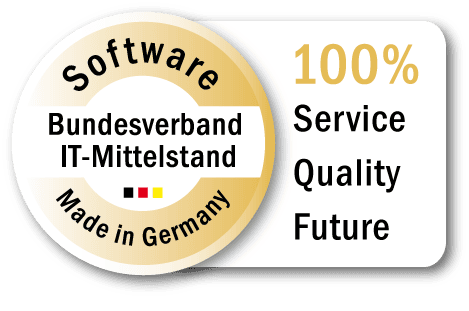Siemens S7, or SIMATIC S7, is a widely used control platform. The S7 family includes a wide range of control systems, from compact PLC controllers to powerful industrial controllers. Once in use, the question often arises as to how Siemens S7 PLCs can be connected bidirectionally to existing systems.
Siemens S7 Interfaces – Bidirectional Integration
Depending on the model and implementation, Siemens S7 controllers offer various integration options for bidirectional connection to external systems. The choice of the optimum S7 interface depends mainly on the capability of the control system. The specific use-case requirements are also relevant, such as the degree of data granularity, the security requirements and the system architecture.
TCP (Transmission Control Protocol)
TCP is suitable for reliable and connection-oriented communication between controllers and other network components. The protocol provides the basis for data transmission, function calls (e.g. Tsend_c, Trcv_c) must be implemented at application level itself.
Pros
- Provides a low-level connection that can be performant and efficient (without additional protocol overhead)
- Control over the communication process
- Simple and uncomplicated communication method
Cons
- May require additional development work in the control system to set up S7 communication via TCP/IP.
- Higher-level protocol functions such as data model abstraction, security and reliability are missing.
RFC 1006 (Remote Function Call over TCP)
RFC 1006 is a specific application of the TCP protocol for the remote execution of functions via TCP (so-called Remote Function Calls – RFCs).
Pros
- Native communication protocol for Siemens S7 PLCs, ensuring compatibility and performance
- Direct access to PLC data blocks, inputs, outputs and flags
- Relatively low latencies
Cons
- Less secure than OPC UA, as there is no integrated encryption and extended security functions.
- Limited interoperability with non-Siemens systems.
OPC UA (Unified Architecture)
OPC UA is an industrial communication protocol for secure and interoperable data exchange. Further information on OPC UA can be found here.
Pros
- Interoperable industry standard protocol
- Supports complex data types and object-oriented data structures
- Built-in security functions (encryption, authentication and authorization)
Cons
- If not already available: more complex setup and administration compared to simpler protocols.
- May require additional software or licensing.
MQTT (Message Queuing Telemetry Transport)
MQTT is a lightweight pub/sub messaging protocol designed specifically for IoT applications to optimize communication between devices over variable bandwidth networks.
Pros
- Direct integration into an Industrial Unified Namespace (UNS) architecture possible
- Efficient communication based on events
- Offers different quality levels of message transmission (Quality of Service)
Cons
- Not natively designed for direct control communication in S7 environments
- Integration may require additional interfaces or adapters.
Why Siemens S7 is so popular
The control system is characterized by reliability, flexibility and a high level of functionality. It is precisely these advantages that make the controller a popular choice for the control and automation of manufacturing processes. The controllers are usually programmed using special software, such as STEP 7 (Siemens Totally Integrated Automation Portal). Other reasons for the popularity of the PLC are:
- Variety of control systems: Siemens S7 offers a wide range of control systems, from small and compact PLCs (programmable logic controllers) to powerful industrial controllers. These are designed to handle various tasks in automation technology.
- Flexibility: The control platform is extremely flexible and can be adapted to the requirements of different industries and applications. This also includes the ability to add extension modules to provide additional functionality.
- Reliability and robustness: Siemens S7 controllers are designed for use in industrial environments and are characterized by their high reliability and robustness. They are designed to work continuously even under demanding conditions.
- Highly complex tasks: S7 controllers are capable of handling highly complex tasks. This includes the control of machines, processes and production facilities.
Bidirectional Integration of Siemens S7 with i-flow
The integration of Siemens S7 controllers into existing automation systems can be a complex task. Different protocols, data formats and data models can make smooth communication between different control systems difficult.This is where i-flow comes into play. With i-flow, you can seamlessly integrate the S7 controller into your existing automation environment and benefit from a wide range of advantages:
- Interoperability: i-flow enables communication between different control systems and technologies, including the Siemens S7 controller. This interoperability ensures that machines and systems from different manufacturers can communicate smoothly with each other.
- Data conversion: Not all systems in a factory use the same data format and data model. i-flow can convert data from the Siemens S7 controller into a standardized format to simplify integration and data analysis.
- Edge analytics: Large amounts of data are generated in modern factories. i-flow enables optimized processing and analysis of this data in edge and cloud environments to provide real-time insights and automation capabilities.
- Data integration: Data formatted with i-flow can be easily forwarded to downstream business systems such as ERP (Enterprise Resource Planning) or MES (Manufacturing Execution System).


